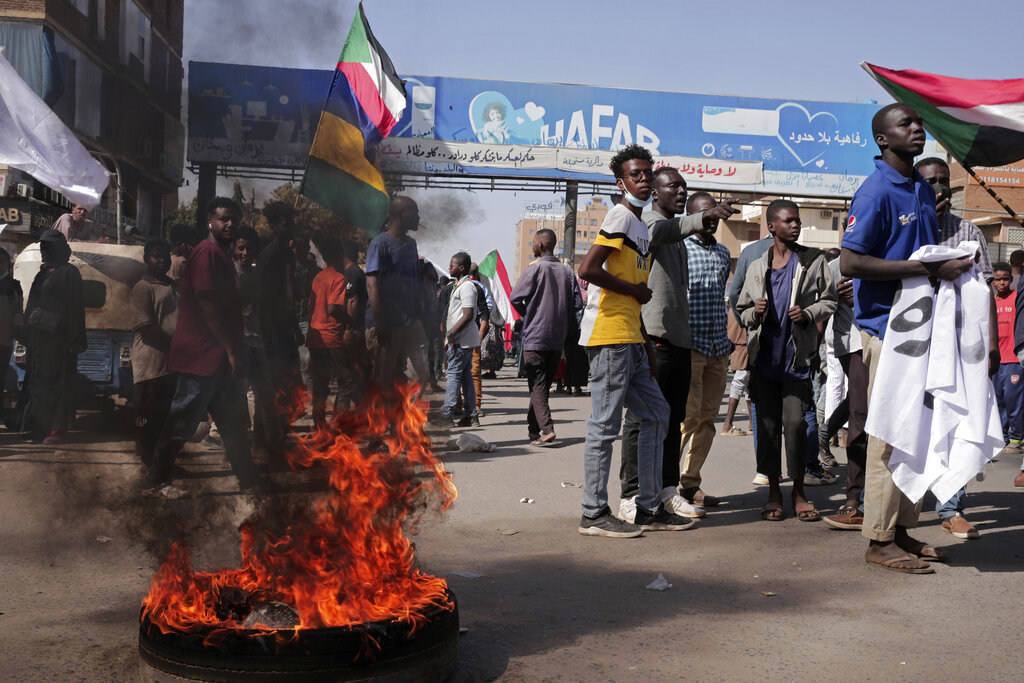ADF STAFF
The African Union named Senegalese human rights expert Adama Dieng to a newly created post: special envoy for Prevention of Genocide and Mass Atrocities. It’s an intimidating job considering the violent conflicts raging across the continent.
The announcement was made on April 7, a day on which leaders across the continent and the world gather in somber reflection to observe the anniversary of the 1994 Rwandan genocide.
Normally, African Union chairperson Moussa Faki Mahamat marks the event at the AU headquarters in Addis Ababa, Ethiopia. This year, however, he attended the 30th anniversary ceremony in Kigali, the Rwandan capital.
He acknowledged the international community’s role in the 100-day massacre that claimed the lives of 800,000 people, mostly of the minority Tutsi ethnicity, but also many moderate Hutus.
The failure to intervene, Mahamat said, caused a lingering shame, and “no one, not even the African Union, can absolve themselves from their inaction.”
“Let us have the courage to recognize it and take responsibility for it.”
The AU demonstrated that commitment to fight against genocide, hate speech and other crimes against humanity by appointing Dieng its first special envoy for the Prevention of Genocide and Mass Atrocities.
The post was announced by AU deputy chairperson Dr. Monique Nsanzabaganwa at the April 7 ceremony in Addis Ababa as part of the organization’s agenda to combat the ideology of hate and genocide on the continent.
“He will be the African Union ambassador to propagate the gospel of peace and tolerance across the continent with the aim of preventing genocide, hate speech and other related crimes in all the African Union Member states,” she said, reading a statement by Mahamat.
Dieng, a former registrar of the Supreme Court of Senegal, has deep ties to the aftermath of the Rwandan genocide. In January 2001, Kofi Annan, then the United Nations secretary-general, named Dieng the registrar of the International Criminal Tribunal for Rwanda. He also served as the special advisor to the U.N. Secretary-General on the Prevention of Genocide from 2012 to 2020 and was tapped as an expert on human rights in Sudan in 2021.
Dieng’s extensive background will be put to great use, as several conflicts in Africa have seen atrocities, war crimes and human rights abuses. Claims of genocide continue to swirl around the Darfur region of Sudan, which has been embroiled in civil war for a year.
“Humanity is once again on trial,” Dieng wrote in an opinion piece for The Guardian newspaper. “We are spectacularly failing not only the people of Sudan but also those who work in the service of peace. From what is happening now in Sudan, it is clear humanity has learned nothing from Rwanda, Kosovo and elsewhere.”
Discrimination and torrents of hate speech have fueled Ethiopia’s overlapping ethnic conflicts, which have ranged from sporadic violence to open warfare. Some analysts have estimated the death toll from the two-year Tigray war to be nearly 1 million people, and charges of ethnic cleansing have not been fully investigated.
The eastern region of the Democratic Republic of the Congo (DRC) is another hotspot of violent conflict that often is drawn across ethnic lines. In 2023, Dieng called on the government to help end the targeted persecution of Congolese nationals of Tutsi origin.
“There is a history in eastern DRC of dangerous anti-Tutsi sentiment and rhetoric targeting people who speak Kinyarwanda that have long been perceived as ‘foreigners’ or ‘invaders’ in the DRC,” he wrote in a letter.
In neighboring Rwanda, there are more than 200 memorials to the genocide, and new mass graves continue to be uncovered.
During the Kigali ceremony on April 7, Rwandan President Paul Kagame lit a flame of remembrance and laid a wreath at a memorial site where the remains of 250,000 genocide victims are interred.
“Our journey has been long and tough,” he said. “The lessons we learned are engraved in blood.”

